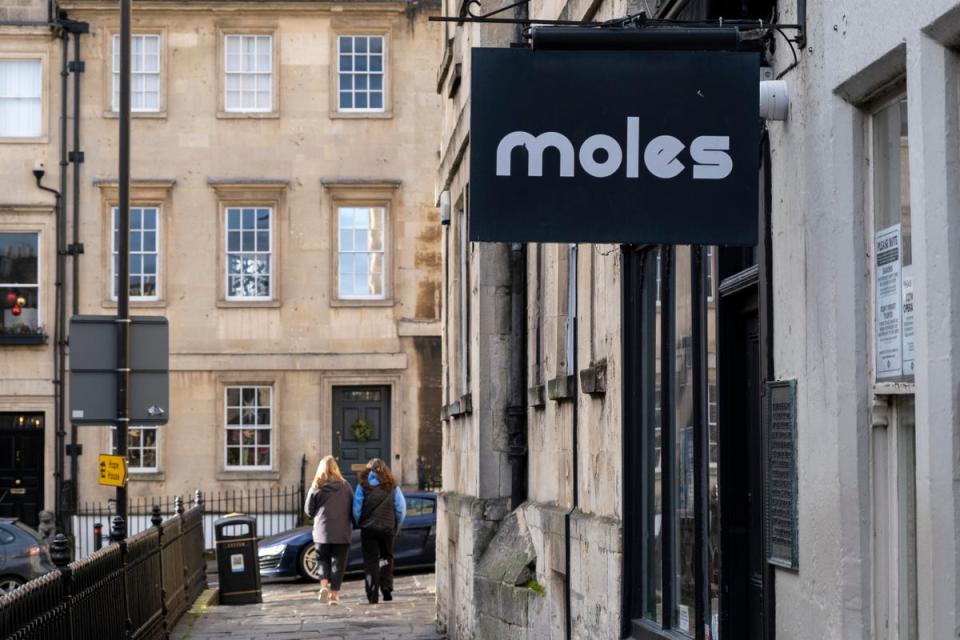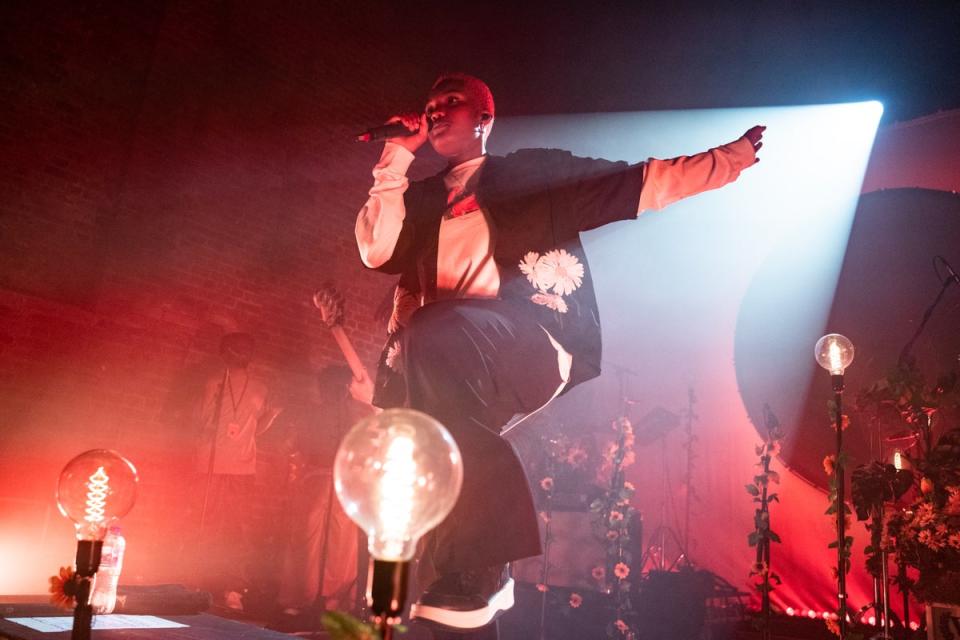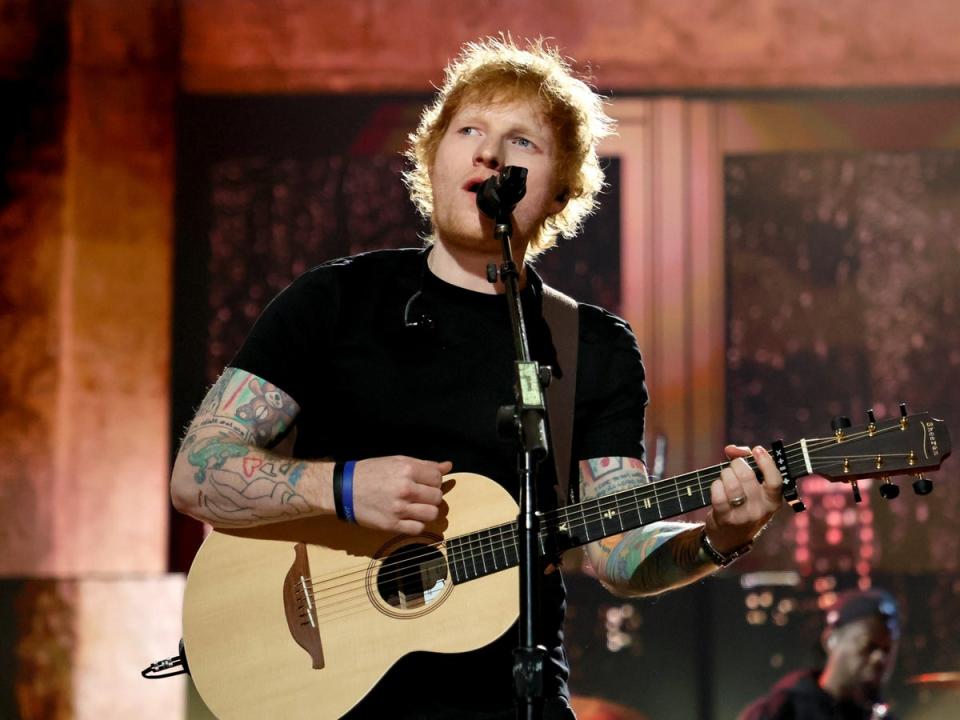Music industry calls on Jeremy Hunt to slash VAT for gig tickets
Leading UK music industry figures are calling on Jeremy Hunt to slash the VAT rate on gig tickets and create a “vital lifeline” for venues under threat of permanent closure.
UK Music, the umbrella organisation that represents Britain's commercial music industry, is asking the chancellor of the exchequer to use his Budget on 6 March to cut the current VAT rate to 10 per cent, consequently offering a boost to music fans, artists and venues.
Gig-goers in the UK currently have to pay 20 per cent VAT on their tickets, almost double the EU average and triple the rate of countries such as Belgium (six per cent) and Germany (seven per cent).
“We urgently need to see some action from the Chancellor in the Budget to support the UK music industry at what is an immensely tough time for many venues and for those working in our sector,” UK Music’s interim chief executive Tom Kiehl said in a statement.
“Cutting VAT on tickets to 10 per cent would be a vital lifeline and could mean the difference between saving and losing some of our most loved music venues, which are key parts of many local economies and communities.”
The call from UK Music follows warnings of an impending disaster for grassroots venues that have been crippled by the cost of living crisis, soaring energy costs and huge financial losses caused by the Covid pandemic.
Around 125 grassroots venues were lost forever last year, according to a grim report from the MVT, including the historic Bath establishment Moles, which helped Ed Sheeran, Radiohead and Oasis launch their careers.

Their demise threatens the UK’s once-thriving live music ecosystem, which in 2022 still managed to attract an estimated 14.4 million “music tourists” who spent a total of £6.6bn, according to UK Music’s latest Here, There and Everywhere report.
Auro Foxcroft, manager of prominent grassroots London venues Village Underground and eartH Hackney, told The Independent that any assistance from the government would be “really well-received”, and that ultimately it would only serve to benefit the government themselves.
“At the moment, we’re losing an incredible amount of grassroots music that underpins the huge success story that is UK music as a whole, from chart-topping artists, arena and stadium tours, festivals, and the one in seven albums sold around the world that is by a UK artist,” he said.
“Every artist that you’ve ever loved, and any artist that you’re yet to fall in love with, will have started out in a grassroots music venue.
“Without those, there is no incubator of new talent, there is no talent pipeline, and there is no world success story for UK music. It all starts with these grassroots venues, and right now they need support – because as we’ve seen, they’re closing down at a rate we’ve never experienced before.”
Foxcroft said that even venues such as the 700-capacity Village Underground – which has hosted Mercury Prize-winner Arlo Parks, Brit Award-nominated rock band IDLES, and Spanish Grammy winner Rosalia, who recently headlined the O2 Arena – had to fight tooth and nail just to stay open.

“In some ways, it’s harder than it was during lockdown,” he said, citing the cost of living crisis, supply costs, and a reduced disposable income among young music fans. “You’re expected to pull a rabbit out of a hat just to keep things going, and that’s why we’re seeing so many venues closing.”
Foxcroft said that, along with the VAT rate reduction, the MVT plan for a “very modest” tax levy on larger capacity music venues was the best option to rescue grassroots venues from extinction.
“It’s very similar to what they do with Premier League and grassroots football, and in other countries around Europe. That would solve the problem, if the government is prepared to act.”
UK Music’s call for a VAT reduction was also welcomed by Mark Davyd, CEO of the Music Venue Trust, who said that it would release approximately £2.5m into the grassroots scene.
More importantly, he said, it would create the profit gap needed to enable arenas and stadiums to offer a tax levy to further help support the grassroots venues, where future stars first cut their teeth in live performances.

“The current government has done a number of positive interventions into the sector,” Davyd told The Independent. “The issue we now face is that none of these interventions have been sufficient to tackle the real structural problems we are experiencing in the live music industry.
“The biggest companies are returning record revenues and profits while the grassroots is collapsing. Anything the government can do would be welcome, but we need real change within our own industry to address the challenges at grassroots level. If a VAT cut could push key stakeholders towards that action it would be warmly welcomed.”


